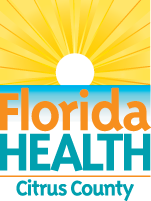Walmart this week joined other grocers and retailers in removing tobacco products from at least some stores in what public health advocates say is an essential step toward improving the national wellbeing.
Smokers and libertarians just see more corporate posturing that denies Americans their right to do what they wish with their bodies.
Lately, there’s been an enormous debate around personal liberty, public health and economic consequences. In an era when political gridlock is the norm, corporate executives find themselves attempting to appease most of their customers while avoiding social media firestorms.
The Wall Street Journal broke the news about Arkansas-based Walmart, where the corporate communications department said as little as possible. The world’s largest retailer would only confirm that tobacco would not be sold in some recently redesigned stores.
An unidentified spokeswoman did her best not to raise a lightning rod in this potential storm. She insisted Walmart will still sell tobacco, just not everywhere.
Walmart is always such a profile in courage. Half Measures R Us.
Federal statistics show that tobacco products are linked to 480,000 deaths a year. That’s nearly half a million parents, children, siblings and cousins who shortened their lives through addiction to a substance universally recognized as harmful.
That’s also 480,000 terminally ill patients who needlessly run up colossal hospital bills for preventable illnesses. Tobacco use costs the United States $225 billion in direct medical care for adults and more than $156 billion in lost productivity, according to the Centers for Disease Control and Prevention.
If you pay taxes or health care premiums, that’s money out of your pocket. A smoker’s bad habit also hurts others, with the CDC estimating that secondhand smoke exposure costs the American economy $5.6 billion in lost productivity every year.
Health care conglomerate CVS decided in 2014 to stop selling tobacco entirely. The corporation pulled products from 7,600 stores without affecting the bottom line. Then in 2019, CVS committed $10 million to fund a campaign discouraging kids from using e-cigarettes and vape pens.
If you are a retailer that also owns a health insurance company — CVS owns Aetna — such moves make sense. And according to a 2019 Morning Consult poll, 62 percent of customers approved of boycotting tobacco.
About a third, though, did not appreciate CVS’s decision. Smokers, of which I was one long ago, enjoy tobacco and nicotine despite the dangers. They don’t want do-gooder CEOs making decisions for them.
Many are getting militant these days about having a choice. Consider the recent troubles over COVID-19, vaccines and public health precautions. Many conservatives opposed government mandates for shots, masks, social distancing, or pretty much anything that could slow the virus.
Red states that respected those demands saw 100,000 more people die from COVID than blue states, according to new data analyzed by Steven Woolf, a medical professor at Virginia Commonwealth University and published in the Journal of the American Medical Association.
“The COVID-19 pandemic removed any doubt that state policies can affect health outcomes,” he concluded. “States that rushed to curtail lockdowns in the spring of 2020 experienced more protracted surges in infections and disruptions to their economies. In 2021, excess deaths were disproportionately concentrated in states where resistance to COVID-19 vaccination was prevalent.”
Texas ranked near the middle. Gov. Greg Abbott’s anti-science, pro-liberty policies triggered high infection rates and death tolls in rural areas, while Democratic policies in the big cities kept those rates on par with East Coast states, according to CDC data.
Even though polling showed that most Texans supported COVID precautions, Abbott bowed to his core supporters. Since then, we’ve all shared the costs of those excess illnesses and deaths. Some of us saw loved ones infected by those who believe liberty comes without responsibility.
Tobacco and COVID, though, are not the biggest killers, nor do they run up the biggest medical bills. Heart disease, hypertension, diabetes and obesity are more costly.
CVS still sells junk food and sweet drinks. All that sugar and salt are as equally deadly as tobacco, but they also generate more profit. Walmart said it was removing tobacco products to make more room at the checkout counter. Will they replace them with refrigerators filled with sodas?
Most doctors agree that obesity is a complicated medical condition that is not solely a question of willpower. Losing weight is rarely as simple as eating better. But public health officials agree that selling less junk food and not displaying it at the cash register would help.
We are an unhealthy nation, and many of us make poor decisions. Retailers, though, can decide not to lead us to temptation and instead take pride in promoting better health.
Tomlinson writes commentary about business, economics and politics.
twitter.com/cltomlinson
chris.tomlinson@chron.com








